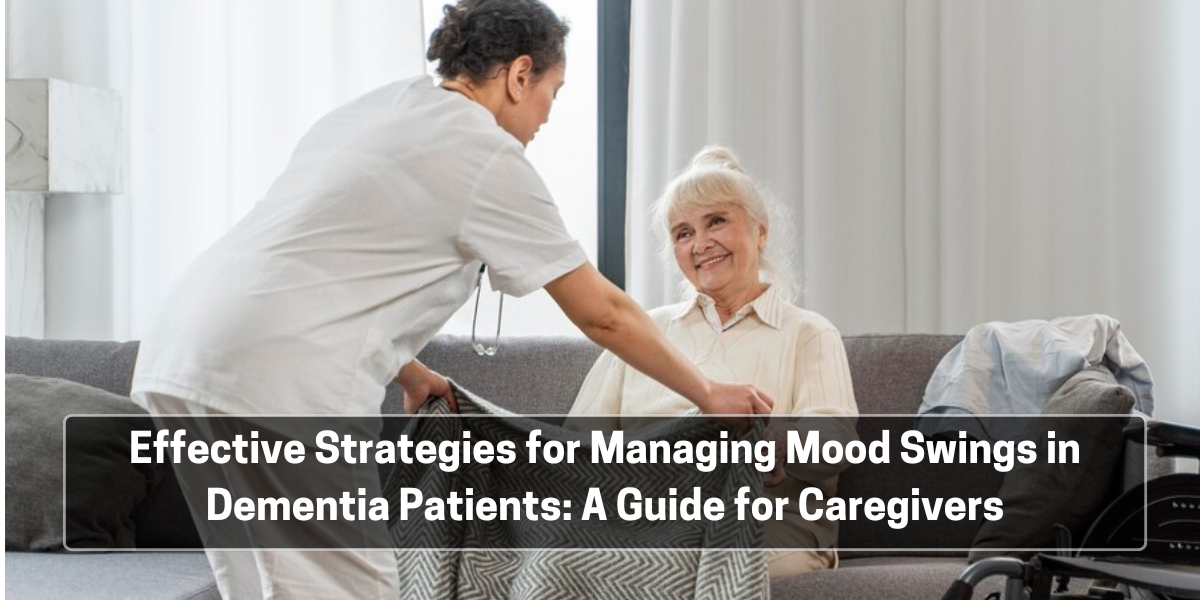Mood swings in dementia patients can be sudden and intense, which can pose difficulties for caregivers. However, there are effective strategies that caregivers can use to manage these challenges. By understanding the triggers that can cause these mood swings, using empathetic communication techniques, and maintaining a routine that prioritises comfort and security, caregivers can improve their interactions with dementia patients and enhance the overall quality of care. Over here we discuss some ways that will help the caregivers at dementia care homes handle mood swings associated with the condition:
Effective management starts with understanding what triggers mood swings in dementia patients:
- Physical Needs: Regularly check if basic needs such as hunger, thirst, or the need to use the restroom are met to prevent discomfort that could lead to irritability.
- Environmental Triggers: Minimise loud noises and keep the environment calm to avoid overwhelming the patient. Familiar settings can help prevent episodes of anxiety and confusion.
Creating a Supportive Environment
A well-organised and stable environment can significantly reduce stress and promote emotional stability. Here’s a detailed look at how to create such an environment:
- One of the most effective ways to support dementia patients is by establishing a consistent daily routine. Stability in daily activities such as meal times, medication schedules, and bedtime can anchor their day and provide a sense of normalcy. This consistency helps minimise cognitive stress, which is often triggered by unexpected changes and can lead to confusion and anxiety.
- The physical layout of the living space is also important. Caregivers must ensure that the environment is safe. This means removing tripping hazards, securing rugs, and using adequate lighting to prevent falls.
- Beyond physical safety, the environment should also be comforting and familiar. Personalising the living area with meaningful items such as photographs, favourite books, or even furniture from home can make a significant difference in how secure and oriented a patient feels.
Effective Communication Techniques
Communicating with a dementia patient requires patience and empathy:
- Speak Clearly and Calmly: Caregivers must use simple, reassuring sentences and maintain a gentle tone to avoid confusing or startling the patient.
- Validate Feelings: They should always acknowledge the patient’s emotions to let them know it’s okay to express themselves.
- Redirect and Distract: When emotions escalate, caregivers should gently shift the patient’s focus to a calming, engaging activity like a favourite hobby or a walk outside.
Behavioural Techniques
Implementing specific behavioural methods can help manage and even prevent severe mood swings:
- Mindfulness and Relaxation Exercises: Caregivers must incorporate simple guided breathing or mindfulness exercises.
- Therapeutic Activities: They should encourage the patients to participate in enjoyable activities such as gardening, painting, or listening to music, which can distract them from distress and uplift their spirits.
Technology to Help Caregivers
Electronic Health Record (EHR) systems can significantly enhance the quality of care provided in dementia care homes by streamlining processes, improving communication, and ensuring better safety for residents. For instance, with EHRs caregivers can create tailored care plans. These systems help the staff create detailed, personalised strategies to manage dementia, including aspects such as behavioural methods , diet plans, and activity schedules. Care plans can be accessed and updated by the care team – thus, ensuring that all members of the care team are informed and aligned in their approach.
eMAR is another digital tool that helps caregivers immensely. For instance, eMAR systems provide real-time updates and alerts to the care team. For instance, if a medication is due or overdue, the system will alert the caregiver, ensuring no dose is missed or delayed. Also, it can alert staff to potential adverse drug interactions or allergies, which is important for preventing harmful complications in patients with complex needs. To know more about eMAR and its benefits, check this useful read.







